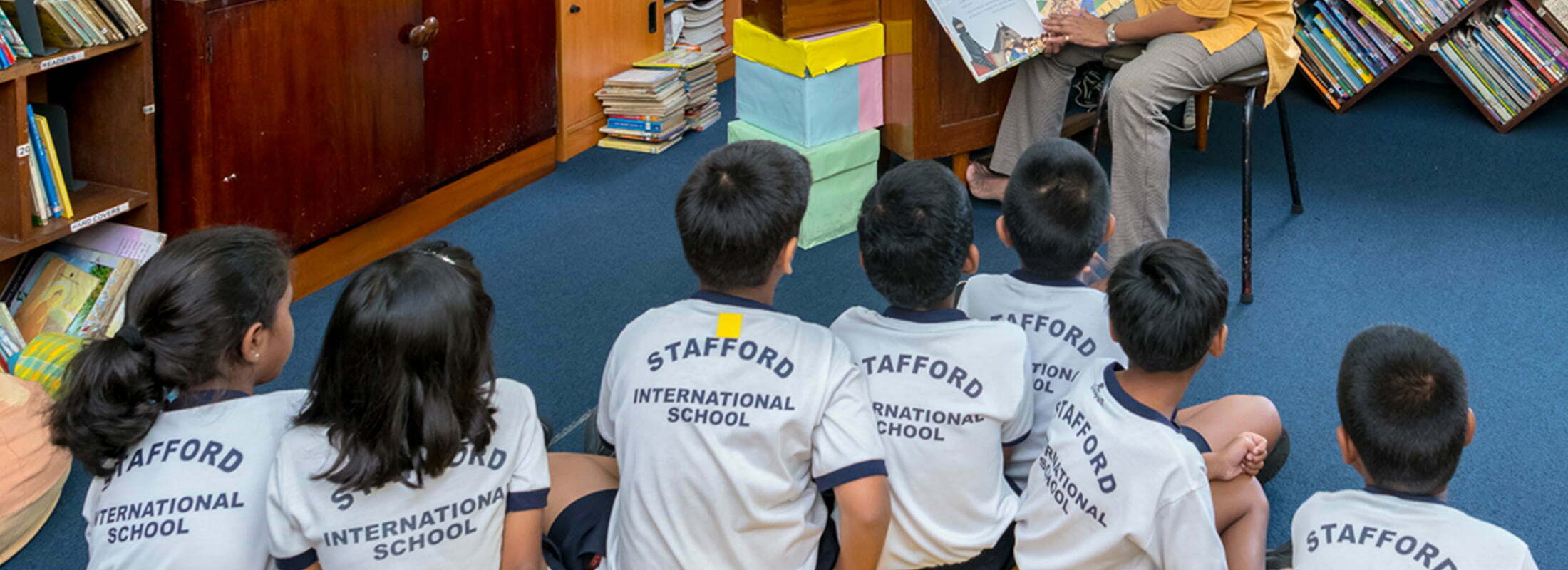
Wellbeing
We are proud of our reputation for making sure every Stafford International School student feels safe, valued, and respected.
Through our commitment to managing mental health and wellbeing, we know we can help our children to be actively and meaningfully engaged in academic and social activities, cope with everyday challenges, and develop into resilient young adults.
We place a strong emphasis on wellbeing and inclusivity and that the academic, personal and physical care of all students are closely monitored. At the heart of our wellbeing crusade, is our Positive Education Programme which blends academic learning with character and wellbeing development.
Equipping students with life skills allows them to not only cope with the pressures of everyday life but take on challenges and achieve their goals. We encourage our students to take ownership of their happiness and wellbeing and give them the tools to do so.
We focus on six main elements that have been identified as critical for long-term wellbeing:
- Positive Emotions: Feeling joy, gratitude, interest, and hope
- Engagement: Being fully absorbed in activities that use your skills but still challenge you
- Relationships: Being able to connect with others
- Meaning: Belonging to and serving something you believe is bigger than yourself
- Accomplishment: Pursuing success, achievement, and mastery
- Health: Understanding the importance of sleep, exercise, and diet
WELLBEING IN THE PRIMARY SCHOOL
For our younger children, the curriculum includes Moral, Social and Cultural Education to encourage them early to reflect on their own morals and values and actively promote mutual respect, cultural engagement, and inclusivity.
This, coupled with our Positive Education programme gives young students the skills to build positive relationships, regulate their emotions, engage in their environment, and find purpose in living a meaningful life.
WELLBEING IN SECONDARY SCHOOL
We have established a ‘No Fail’ culture, where FAIL stands for First Attempt In Learning.
This belief system helps our students to understand that it is OK to take risks and important to learn from every experience.
For our middle school children, the curriculum includes Moral, Social and Cultural Education to encourage them early to reflect on their own morals and values and actively promote mutual respect, cultural engagement, and inclusivity. This, coupled with our Positive Education programme gives young students the skills to build positive relationships, regulate their emotions, engage in their environment, and find purpose in living a meaningful life. In Year 9, we introduce our Options programme to encourage students to think about their future and guide them in planning how they can reach their goals.
WELLBEING IN SIXTH FORM
Sixth Form academic challenges are formidable and it’s important that our wellbeing programmes can offer support and ensure that students do not become overwhelmed and stressed during their two final years of school, particularly when their lives can also include milestones such as learning to drive, turning 18, and considering a move away from home, and into the workplace.
Our small class sizes and excellent tutor groups allow very strong and supportive relationships to be built. Sixth Form students meet their tutors daily to build relationships and access support in essential aspects of their education and preparations for life beyond it.
Each tutor group is supported by an experienced member of staff who guides, advises, and supports students academically, professionally, and personally. Our student support team comprises the Head of Sixth Form, Whole of School Counsellor, and the student’s tutor. The team closely monitors each student’s academic progress, wellbeing, options, and aspirations.
Pastoral Care
Outstanding pastoral care is fundamental to a quality education, and our staff are committed to ensuring the highest levels of support for your child. Guided by our five core values of Kindness, Integrity, Resilience, Responsibility and Innovation, we foster personal and emotional development as well as academic ambition. Our House system provides pupils with a sense of solidarity along with practical support and guidance. Pupils are encouraged to express themselves and cultivate mindfulness as they learn from life’s challenges. Our houses also provide the key line of communication between the school, pupils and parents.
House System
-
Each pupil’s house will be their home throughout their time at Stafford International School. Here, they will forge lasting friendships and celebrate their achievements together. Pupils develop a sense of pride in 'their house' and their fellow housemates. We bolster this pride through regular inter-house competitions in which pupils get to showcase their academic, artistic and sporting abilities.
The house environment also gives our pupils opportunities to take the lead and drive others forward through service, coaching or mentoring their peers, captaining a team or leading a production.
Each house will be overseen by a housemaster (HM) and a team of tutors who are dedicated to supporting and guiding each child throughout their time at Stafford as they negotiate relationships, expectations and social challenges they face daily.
- The Four Houses are : Felix, Kalan, Noreen and Ruby named after key figures in our history

